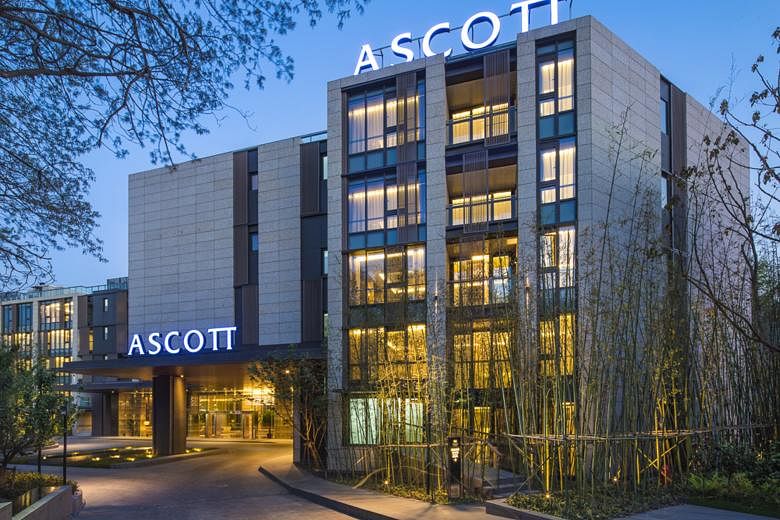CapitaLand's serviced apartments business seems to be having its time in the sun now, after years of being an under-appreciated arm of the giant company.
The Ascott Limited has been bullish about growing scale in the segment, making a number of strategic moves in recent months.
On Monday, it announced an investment in Chinese apartment- sharing site Tujia, including setting up a joint venture.
Last month, it unveiled a US$600 million (S$829 million) fund in partnership with Qatar Investment Authority (QIA) - the largest private equity fund it has set up.
It has exceeded its target of 40,000 units by this year, and now plans to have 80,000 by 2020 - through management contracts and tapping third-party capital sources such as QIA.
Analysts say it has an edge in serviced apartments, given its global scale and position as the world's largest owner and operator. Its asset base has grown since it acquired the pan-European Citadines chain in 2002, said Asean property research director Vikrant Pandey at UOB Kay Hian.
Apart from growth in China, he feels more projects are likely in the United States, following Ascott Residence Trust's maiden investment in a hotel at New York's Times Square last month.
"It's a big market in the US, with corporate housing or serviced apartments always in demand. If we can do it right in tech cities such as Boston and Silicon Valley, we can have a significant presence there," said Ascott chief executive Lee Chee Koon, following CapitaLand's results briefing on Wednesday.
The focus on this segment comes amid a more muted outlook for CapitaLand's other units.
Even though the mall business in China has been expanding, growth has moderated, said CLSA senior research analyst Wong Yew Kiang. Same-mall net property income grew 9.1 per cent in the first half, against 10-12 per cent previously, partly because of rivalry from e-commerce, he noted.
"With malls opening in Wuhan and Guangzhou later this year and another nine set for next year, it seems unlikely more capital will be deployed into land acquisition for its China malls in the near term."
The pre-committed occupancy rate is 60 per cent for the Wuhan mall; 70 per cent for Guangzhou.
CapitaLand said at the briefing that "the market has changed, and very few malls can open with 100 per cent occupancy".
Sales of its homes in China rose in the first half, with transaction values about three-fold what it posted a year ago.
However, land prices still seem to be high in China, which will make margins unattractive.
CapitaLand group chief Lim Ming Yan said on Wednesday it is "on the lookout for the right opportunities in China, and some are surfacing". However, he said, it has " decided not to actively acquire in those periods" where market pricing does not seem at an appropriate value.
For Singapore, its residential strategy seems to be one of clearing unsold stock while land prices are still high. It has not been taking part in land tenders, but has been "quite active behind the scenes analysing the tenders", said CapitaLand Singapore chief Wen Khai Meng.
The group seems to be keeping its exposure low here, while increasing investments in the Asean region, said Mr Pandey. He noted that China remains a more attractive engine for growth.
Another growth area is fund management, as with many other developers. CapitaLand is a strong player on this front with its five real estate investment trusts and 17 private equity funds, despite heavy competition for third-party capital, said DBS vice-president of equity research Derek Tan.
Overall, expansion on the serviced apartments front is in line with the group's strategy to have investment properties with recurring income form 70 to 80 per cent of its portfolio.
This has paid off over the past two years, as the Singapore and Chinese markets were hit by property restrictions.
"The group is transforming itself into something that is quite different," Mr Lim said on Wednesday, adding that the mix gives the group resilience. "When the market gets tough, that's when CapitaLand is in a good position to take advantage of opportunities."


